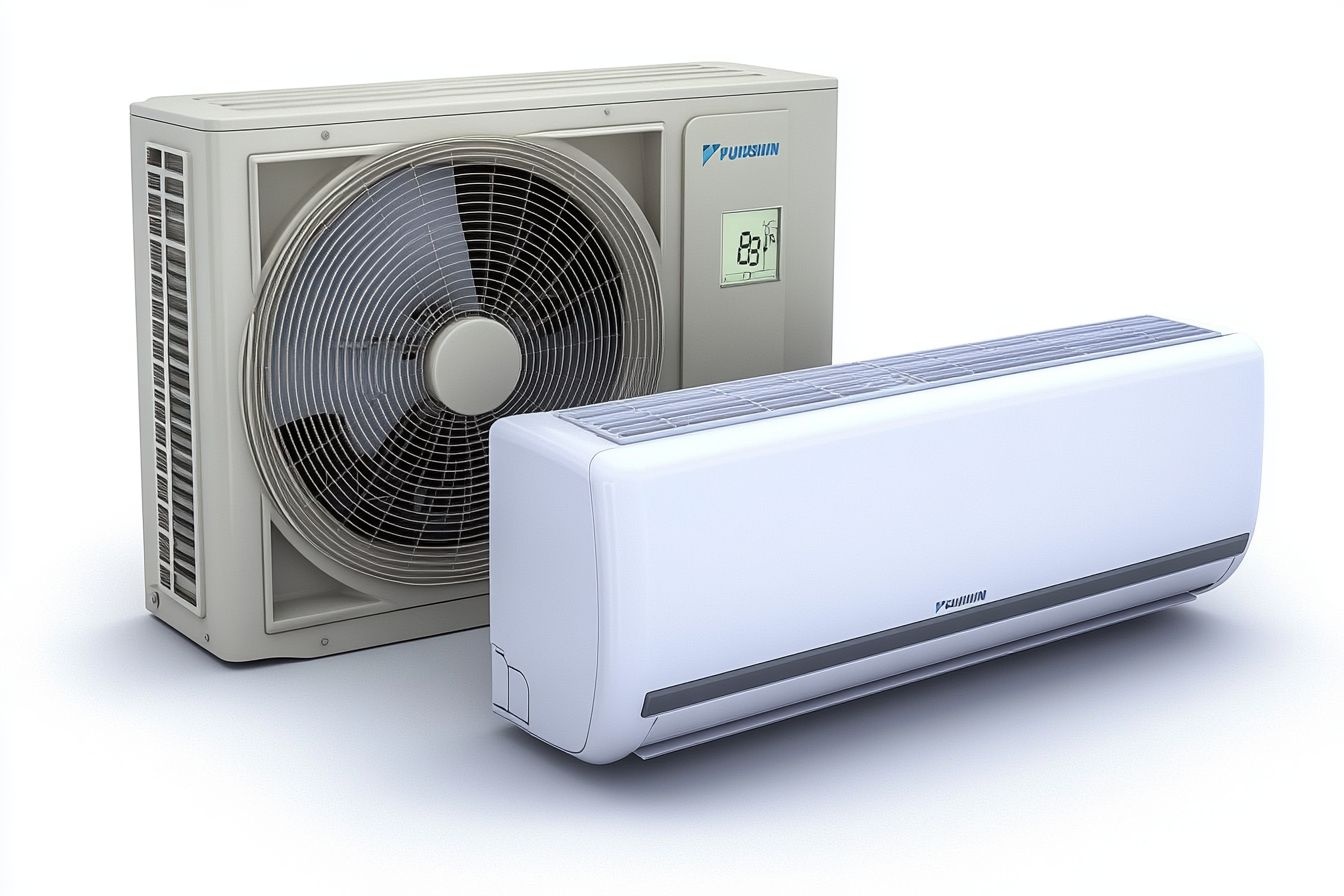Mini Split AC Systems: Efficient Comfort Without the Ductwork
Energy efficient systems offer better control over indoor temperatures while keeping energy costs in check. Mini split ACs provide targeted comfort with ductless heating and cooling, making them ideal for homes, offices, small spaces, additions, and even older buildings.

How do ductless heating and cooling systems provide efficient comfort?
Ductless mini split AC systems consist of two main components: an outdoor compressor unit and one or more indoor air handling units. These units are connected by a small conduit that houses the refrigerant lines, power cable, and condensate drain. Unlike traditional central air conditioning systems, mini splits don’t require ductwork to distribute cooled or heated air throughout a space.
This ductless design offers several advantages for efficient comfort:
-
Minimal energy loss: Without ductwork, there’s no risk of air leakage or thermal losses that commonly occur in traditional HVAC systems.
-
Zoned temperature control: Each indoor unit can be controlled independently, allowing for customized comfort in different areas of your home or office.
-
Flexible installation: Mini splits can be installed in various locations, including walls, ceilings, and floors, making them ideal for both new construction and retrofits.
-
Energy efficiency: Many mini split systems use inverter technology, which allows the compressor to adjust its speed based on cooling demands, resulting in lower energy consumption.
What are the benefits of using mini split ACs in different room sizes?
Mini split AC systems offer versatility in terms of room size and layout, making them suitable for a wide range of applications:
-
Small spaces: In apartments, studios, or single rooms, a single indoor unit can efficiently cool or heat the entire area without taking up valuable floor space.
-
Large open areas: Multiple indoor units can be installed to provide even cooling or heating in spacious living rooms, open-plan offices, or retail spaces.
-
Multi-room homes: With the ability to connect multiple indoor units to a single outdoor compressor, mini splits can efficiently cool or heat different rooms independently.
-
Additions and conversions: Mini splits are perfect for home additions, converted attics, or garages where extending existing ductwork may be impractical or costly.
-
Historic buildings: The non-invasive installation process makes mini splits an excellent choice for older homes or buildings where preserving architectural integrity is important.
How do mini split ACs improve air quality and temperature control?
Mini split AC systems offer several features that contribute to improved air quality and precise temperature control:
-
Advanced filtration: Many mini split indoor units come equipped with multi-stage filtration systems that can remove allergens, dust, and other airborne particles, improving indoor air quality.
-
Dehumidification: Mini splits effectively remove excess moisture from the air, helping to maintain a comfortable humidity level and reduce the risk of mold growth.
-
Precise temperature control: With individual thermostats for each indoor unit, mini splits allow for accurate temperature settings in different zones or rooms.
-
Quick cooling and heating: Mini splits can rapidly adjust room temperatures, providing fast comfort when needed.
-
Quiet operation: Most mini split systems operate at lower noise levels compared to traditional central air conditioners, contributing to a more peaceful indoor environment.
What are the cost considerations for mini split AC systems?
When considering a mini split AC system, it’s important to understand the associated costs:
-
Initial investment: Mini split systems generally have a higher upfront cost compared to window units or portable air conditioners. However, they often prove more cost-effective in the long run due to their energy efficiency.
-
Installation costs: Professional installation is recommended for mini split systems, which adds to the initial expense. However, the lack of ductwork can significantly reduce installation costs compared to central HVAC systems.
-
Energy savings: The high efficiency of mini split systems can lead to lower monthly energy bills, offsetting the initial investment over time.
-
Maintenance costs: Regular maintenance, such as filter cleaning and professional check-ups, is essential for optimal performance but generally less expensive than maintaining ducted systems.
| System Type | Average Cost Range (Including Installation) | Energy Efficiency (SEER Rating) |
|---|---|---|
| Single Zone Mini Split | $3,000 - $5,000 | 16 - 30 SEER |
| Multi-Zone Mini Split (2-5 zones) | $5,000 - $15,000 | 16 - 30 SEER |
| Central AC System | $3,000 - $7,000 | 13 - 21 SEER |
Prices, rates, or cost estimates mentioned in this article are based on the latest available information but may change over time. Independent research is advised before making financial decisions.
Are there any drawbacks to consider with mini split AC systems?
While mini split AC systems offer numerous benefits, there are a few potential drawbacks to keep in mind:
-
Aesthetic considerations: The indoor units are visible on walls or ceilings, which some homeowners may find less appealing than hidden ductwork.
-
Limited heating capacity: In extremely cold climates, some mini split heat pumps may struggle to provide sufficient heating, potentially requiring a backup heating system.
-
Regular maintenance: While generally low-maintenance, mini splits require regular filter cleaning and professional servicing to maintain optimal performance.
-
Refrigerant line limitations: The distance between indoor and outdoor units is limited by the length of the refrigerant lines, which may restrict placement options in some cases.
Mini split AC systems offer an efficient and flexible solution for heating and cooling various spaces without the need for ductwork. With benefits like improved energy efficiency, customizable comfort, and enhanced air quality, these systems have become increasingly popular for both residential and commercial applications. By carefully considering your specific needs and consulting with HVAC professionals, you can determine if a mini split AC system is the right choice for your comfort needs.




